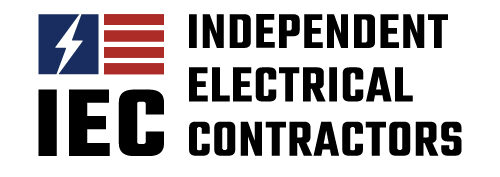Speaker Snapshot:
Steve Killius
Brought to you courtesy of IEC Insights
Get a GRIP On Your Rework. Yes, There Is Rework. Are Your Teams Covering It Up or Do You Measure It, Debrief, and Mitigate?

Steve Killius
Legrand
VP, Contractor Industry Affairs and Programs
Session Date: Monday, October 14
Session Time: 10:15 AM – 11:15 AM
Steve Killius is the vice president of Contractor Industry Affairs and Programs for Legrand North and Central Americas Electrical Wiring System division. He has 30 years of experience in sales of electrical and communications products to the electrical construction contractor including positions with independent agencies, integrators, and manufacturers. Steve represents Legrand in electrical associations, apprenticeship programs, peer groups, and foundations and has presented numerous seminars, workshops, and training sessions on protecting productivity, lowering installed cost, and lowering risk.
Steve’s SPARK presentation explores the common root causes of rework and how to implement GRIP, a system to measure your organization’s “error culture” or tolerance for errors, systematically document instances of rework, and establish a process for anticipating and mitigating rework. A rework situation avoided impacts the bottom line directly.
“Every electrical contractor will experience rework, the need to remove and replace work where there will be no compensation,” Steve explains. “This is unpaid rework, defined as activities in the field (including prefabrication) that must be done more than once, or activities which remove work previously installed as part of the project, where no change order has been issued and no change of scope have been identified by the owner. Doing research on this topic, it became clear that few systematically record and document the impact and costs of rework to find a way to minimize the occurrence. A tool now exists to help a contractor get a GRIP on rework.”
Steve says the key to mitigating the causes of rework it to start with your organization’s error culture and adjust that culture so that it allows you to create a process that will:
- Implement a rework data collection system to document rework that does occur
- Train teams to analyze and act on rework data to mitigate risks on future projects
- Perform an anticipated rework assessment prior to the start of construction
“Contractors who practice this have seen dramatic reductions in rework through honest, blameless assessment of mistakes, allowing the field teams to be more collaborative, cooperative, productive, and profitable,” says Steve. “We will never be able to eliminate the occurrence of rework, however we can get it under control. You cannot control something you don’t measure, so at a minimum, implement the systematic documentation of rework to enable a debrief discussion in your post-project meeting.”

